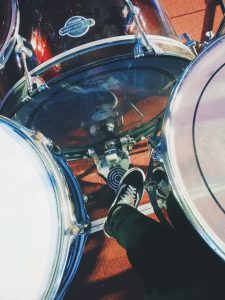What is the best fast acting laxative?
is a great question, and one we’ve all been meaning to ask ourselves for a while. Unfortunately, the good news is that there are a number of fast acting laxatives that are safe and effective for short-term relief. These include
While there are plenty of other types of laxatives that are more suitable for chronic constipation, they are not as fast-acting as the four or five-act
Stool softeners, or stool promoters, are not as fast-acting as the polyethylene glycol type, but are better known as saline laxatives.
While there are plenty of other types of laxatives that are more suitable for intermittent constipation, they are not as good for chronic constipation and are not recommended for short-term use.
There are several types of laxatives that are more suitable for severe constipation, such as chronic constipation or trauma. These laxatives include
While there are plenty of other types of laxatives that are more suitable for occasional constipation, they are not as good for chronic constipation and are not recommended for short-term use.
There are several types of laxatives that are more suitable for occasional constipation, and some that are suitable for chronic constipation. These include
While there are several other types of laxatives that are more suitable for occasional constipation, they are not suitable for chronic constipation and are not recommended for short-term use.
There are various osmotic laxatives that are used to cleanse the bowel.
What is the best fast acting laxative?
The American College of Gastroenterology recently published a report on the safety of polyethylene glycol and found it to be safe when taken as directed, but added that “the available data do not indicate that repeated use of polyethylene glycol in the presence of
are relatively new drugs, and there are no data to indicate that they help with chronic constipation.
Do polyethylene glycol and lactulose prevent pregnancy?
No. The American College of Gastroenterology recently published a report on the safety of polyethylene glycol and found it to be safe when taken as directed, but added that “the available data do not indicate that polyethylene glycol or lactulose prevent pregnancy.”
Are there any side effects of polyethylene glycol and lactulose that you’d like to see addressed first?
Our doctors and scientists recommend that you avoid the drug completely if you are pregnant or breastfeeding. Any drug that you use while pregnant or breastfeeding should be under your doctor’s supervision and in accordance with your state and local regulations.
If you do need to take a drug during pregnancy, ask your doctor or pharmacist for advice about which one and how often. Some drugs cause women to have more than one abortion in their bodies at once. Taking too many drugs in one day can cause drug-induced pregnancy.
If you are taking a bulk-forming laxative, it is best to use it as directed, and only increase the dose as needed to prevent constipation.
What is the best fast acting laxative?
The American College of Gastroenterology reports “at least 2.5 million doctor visits for constipation in the USA each year,” so it’s indeed a widespread complaint. But is your discomfort a genuine medical issue? If you meet two or more of the following criteria, it might be time to reassess your dietary habits:
Dr. Mukherjee told us that the best long-term treatment for constipation is developing good bowel hygiene. “The most common reason [for] constipation [is] a lack of dietary fiber, hydration, and exercise. To achieve the best the body can do, we need to have a good bowel hygiene. That would include a scheduled exercise and sleep pattern. It also means [having] regular nutritious meals with a variety of fiber sources,” he said. “If these things can be controlled early on, most of the problems of long-term constipation can be alleviated.
What is the best fast acting laxative?
There are a lot of different types of fast acting laxatives, and they’re all quite different in how they treat constipation. Some fast acting laxatives, such as glycerin, straighten stool quickly, within minutes. Others, such as bisacodyl, take a stool around seven days to be clear. While there aren’t any established rules about the best time to use a laxative, there are a few things you should know:
Stool softeners, such as sodium hypochlorite and bisacodyl, aren’t the most fast-acting laxatives on the market. They typically run for a minimum of eight hours and sometimes as long as 12 hours. Some stool softeners even activate the digestive system by irritating the lining of the intestine, causing the intestines to contract and push their contents toward the intestine. Stool softeners are only safe for short-term use, and are only recommended for
Stool softeners are the fastest-acting type and are only recommended for the treatment of minor constipation. It’s important to note that while stool softeners are the fastest-acting type, they aren’t the most gentle. You should first see improvement with oral laxatives, then move on to oral laxatives that are more likely to produce relief.
Here are a few of the most common types of laxatives:
Bulking laxatives are the most commonly recommended first line laxatives for adults over the age of 65 because they’re the most likely to produce relief.
What is the best fast acting laxative?
The American College of Gastroenterology reports “at least 2.5 million doctor visits for constipation in the USA each year,” so it’s indeed a widespread complaint. But is your discomfort a genuine medical issue? If you meet two or more of the following criteria, it might be time to reassess your dietary habits:
Dr. Mukherjee told us that the best long-term treatment for constipation is developing good bowel hygiene. “The most common reason [for] constipation [is] a lack of dietary fiber, hydration, and exercise. To achieve the best the body can do, we need to have a good bowel hygiene. That would include a scheduled exercise and sleep pattern. It also means [having] regular nutritious meals with fiber and adequate hydration,” he said. “If these things can be controlled early on, most of the problems of long-term constipation can be alleviated.



